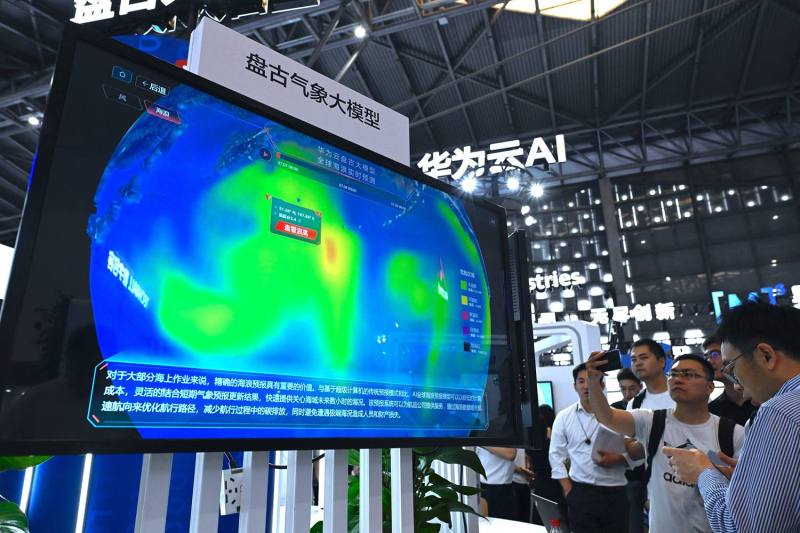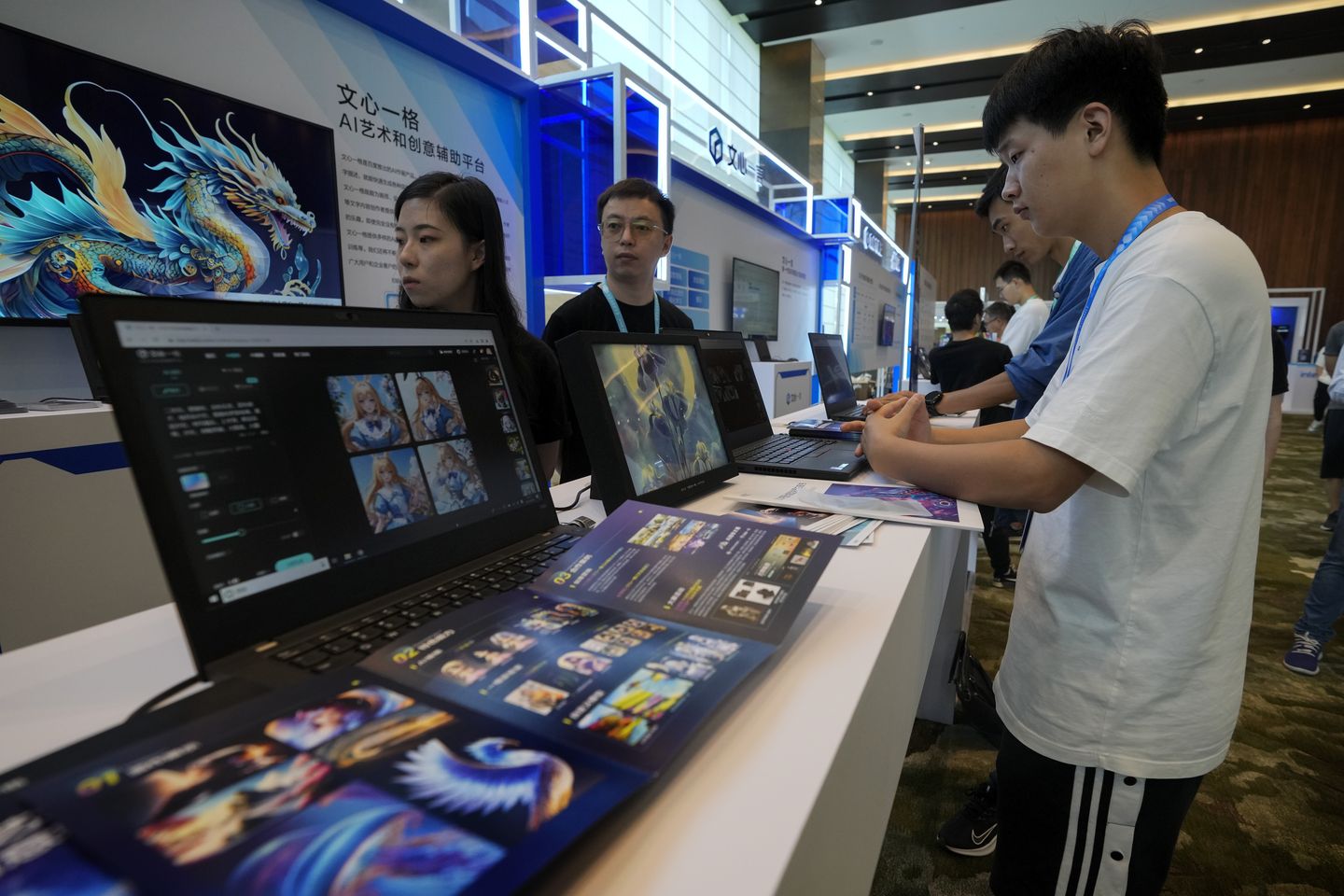In a move reminiscent of ongoing debates in the United States, China’s communist regime has announced plans to regulate the burgeoning field of generative artificial intelligence, mirroring similar efforts to label and restrict information produced by powerful new technological tools.
The Cyberspace Administration of China revealed on Friday its intentions to enforce rules aimed at clearly marking AI-generated content, overseeing internet news and information generated without authorization, and intensifying efforts to combat false information.
According to an English-language translation of the regulatory notice, the Chinese regulator’s “special actions” will target specific sectors of the internet and research, with a particular focus on addressing internet “trolls” and quashing rumors disapproved by the communist regime.
This notice highlights that despite stark ideological disparities and fierce geopolitical rivalries, the Chinese government shares many concerns expressed by officials and lawmakers in the Biden administration and Capitol Hill regarding the proliferation of misinformation and deceptive content facilitated by new generative AI technologies.
Both China and the United States, along with regulatory bodies in the European Union, are grappling with finding a delicate balance between fostering the positive aspects of AI and mitigating the abuses and challenges that have already emerged.

China Ramps Up Regulation of Generative AI: Echoes US Efforts (Credits: Foreign Policy)
Generative AI tools, including popular products like ChatGPT, utilize robust models to generate text, images, and videos in response to user queries, often exhibiting remarkably human-like qualities.
Some of China’s proposed regulations bear resemblance to initiatives put forth by American lawmakers, such as the push to label AI-generated content. Senators Brian Schatz, a Democrat from Hawaii, and John Kennedy, a Republican from Louisiana, introduced the AI Labeling Act last summer, seeking to mandate AI warning labels to prevent scammers from deceiving Americans.
While legislative efforts in the United States have encountered obstacles, with bills like the AI Labeling Act stalling and other proposals remaining subject to debate, Beijing has pressed forward with drafting aggressive regulations.
State-affiliated media outlet Global Times noted that the latest enforcement push announced on Friday builds upon interim regulations established for generative AI since August 2023, forming part of China’s inaugural comprehensive regulation specifically targeting AI.
However, perceptions that China is significantly tightening its grip on AI may overestimate the actual impact, suggests Angela Huyue Zhang, a law professor at the University of Hong Kong.
In a recent research paper, Ms. Zhang argues that China’s apprehension about falling behind American and Western competitors in the AI race, coupled with escalating chip embargoes on Chinese AI firms led by Washington, have dampened the communist government’s enthusiasm for reining in domestic players and enforcing proposed AI regulations.

China Ramps Up Regulation of Generative AI: Echoes US Efforts (Credits: Reuters)
Ms. Zhang observes that Chinese regulators have tended towards a lenient approach to AI regulation in practice, as evidenced by their permissive stance on the contentious use of facial recognition technology. She notes that Chinese courts are actively supporting the AI industry’s growth.
While China rivals the United States in specific commercial and national security applications of AI, such as facial recognition, voice recognition, and AI-enhanced drones, Ms. Zhang contends that the U.S. maintains a significant lead in other AI domains, particularly those leveraging “large language” models fundamental to generative AI tools. Industry analysts estimate that Chinese AI firms lag behind their U.S. counterparts by two to three years.
Ms. Zhang suggests that China’s strategically lenient regulatory approach may confer short-term competitive advantages to its AI firms over European and U.S. counterparts. However, she warns that such leniency risks creating regulatory gaps that could escalate into AI-related accidents and disasters.
Similar concerns about maintaining a competitive edge amid stringent AI regulations have emerged in the United States. Small AI startups have expressed worries that President Biden’s executive order issued in October could stifle their growth prospects, according to Esube Bekele, an official with In-Q-Tel, a Virginia-based nonprofit venture capital firm focused on supporting U.S. intelligence agencies with cutting-edge information technology.
Mounting apprehensions regarding President Biden’s AI regulations have prompted the House Committee on Oversight and Accountability to schedule a hearing later this month, addressing what it perceives as “White House Overreach on AI.”























